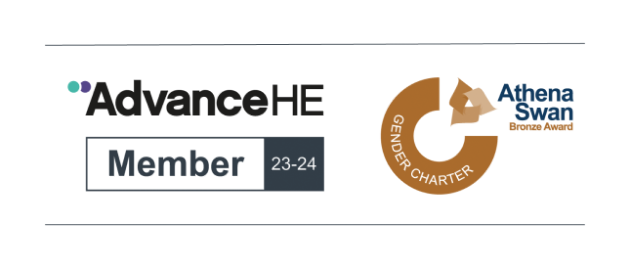Your summer preparation must focus on both aspects of your future course in Portuguese: the study of language and the study of literature, culture and history.
Language Preparation
It is vital that you work actively on your language skills over the summer. You may choose to take a summer language course or to spend time living or working in a Portuguese speaking country. Or you may simply make a commitment to watch television, listen to radio, and read newspapers in Portuguese throughout the summer, ideally every day for at least 30 minutes. You should also review Portuguese grammar, especially if you have taken a gap year since your Portuguese A levels and have not worked much with Portuguese in that time. Your goal is to enlarge your vocabulary, improve your listening skills, and increase the grammatical accuracy and syntactic complexity of both your written and spoken Portuguese.
Recommended textbook and websites:
- Um Passo Mais no Português Moderno: Gramática Avançada, Leituras, Composição e Conversação, Francisco Cota Fagundes, University of Massachusetts Amherst.
- BrazilPod - http://coerll.utexas.edu/brazilpod/index.php From here you will have access to six different projects for the study of Portuguese
Please note that you will be asked to take the Diagnostic test prior to coming to Cambridge. (Information will be sent out in late August). The aim of this exercise is to assess your level of Portuguese and, if needed, allocate you to the right group.
Preparatory reading
In order to be ready for the rapid pace of PG1: Introduction to the Language, Literatures and Cultures of Portuguese-Speaking Countries, please read the following before the start of the Michaelmas term:
A. General introductory and background material
- An overview of Lusophone history
- Two good, basic (short) introductions are:
- Boris Fausto , A Concise History of Brazil (Cambridge, 2014)
- David Birmingham, A concise History of Brazil: (Cambridge, 2003)
- Patrick Chabal, A History of Postcolonial Lusophone Africa (Indiana, 2002)
- Some background on Lusophone literature:
- Coutinho, Afrânio. An Introduction to Literature in Brazil. Trans. Gregory Rabassa. New York & London: Columbia University Press, 1969.
- Pazos Alonso, Cláudia, Parkinson, Stephen and Earle, T. F. (eds.), A Companion to Portuguese Literature, (Woodbridge: Tamesis, 2009)
- Hamilton, Russel, Voices from an Empire: A History of Afro-Portuguese Literature (Minneapolis: University of Minnesota Press, 1975)
B. Set texts for the first-year course ‘ Introduction to the Language, Literature and Cultures of the Portuguese-speaking countries,
- Pero Vaz de Caminha, A Carta (1500)
- Camões, Poesia Lírica
- Antonio Vieira, “Sermão de Santo Antônio aos peixes” (1654)
- Jorge de Albuquerque Coelho, Naufrágio que Passou (1601)
- José de Alencar, Iracema (1865)
- Oswald de Andrade, “Manifesto Pau-Brasil and Manifesto Antropófago” (1926 and 1928)
- Fernando Pessoa, Mensagem (1934)
- Luis Bernardo Honwana, Nós matamos o cão tinhoso (1964)
- Vidas Secas (film directed by Nelson Pereira dos Santos, 1963)
- Clarice Lispector, Hora da estrela (1977)
- José Saramago, A Jangada de pedra (1986)
- José Eduardo Agualusa, Nãção crioula (1997)
- Cidade de deus (flm directed by Fernando Mierelles and Kátia Lund, 2002)
C. Portuguese Linguistics
In the linguistics lectures you will gain a good understanding of the Phonetics and phonology, morphology and syntax of modern standard Portuguese as well as of selected varieties of Portuguese such as Brazilian, Cape-Verdean, etc.
There is no set textbook for linguistics, but if you manage to find any of the books below in a local library they are all well-suited to the aims of the Portuguese linguistics lectures:
- Azevedo, Milton M. (2005) Portuguese: A Linguistic Introduction. Cambridge: Cambridge University Press.
- Duarte, Inês (2001) Língua Portuguesa: Instrumentos de Análise. Lisboa: Universidade Aberta.
- Hub Faria, Isabel et al. (eds.) (1996). Introdução à Linguística. Lisboa: Caminho.
- Pinker, Steven (1995) The Language Instinct. London: Penguin.
Alternatively, please consult the following online resources:
http://cvc.instituto-camoes.pt/conhecer/bases-tematicas/historia-da-lingua-portuguesa.html
Additional resources for Portuguese students
Newspapers and magazines:
- Jornal Público - http://www.publico.pt/
- Expresso - http://www.expresso.pt/
- BBC Brasil - http://www.bbc.co.uk/portuguese/
- O Globo - http://oglobo.globo.com/
- Folha de S. Paulo - http://www.folha.uol.com.br/
- O Estado de S. Paulo - http://www.estadao.com.br/
- Valor – www.valor.com.br
Radio and TV
- RTP - http://www.rtp.pt/play/
- Radio TSF - https://www.tsf.pt/
- Radios EBC (Empresa Brasil de Comunicação) - http://radios.ebc.com.br/
- Globo - http://globotv.globo.com/
- CBN - http://cbn.globoradio.globo.com/Player/playerAoVivoRJ.htm
Films
Youtube is an excellent source of authentic Portuguese language material. You can find Portuguese films and cartoons, Portuguese speaking countries television, music and many other entertaining Portuguese materials there with just a little creative searching. This Brazilian comedy group Youtube channel, for example, has videos with English or Portuguese subtitles:
Read as widely as you can on topics in Portuguese history, culture, and literature before starting your course. You will find specific reading suggestions in the online bibliography for PG1, but you may also just want to read Portuguese speaking countries fiction, poetry, or journalism on your own. The more Lusophone literature and history you read (whether in the original or in translation) the better.



